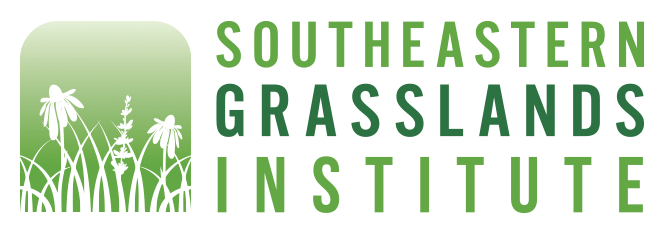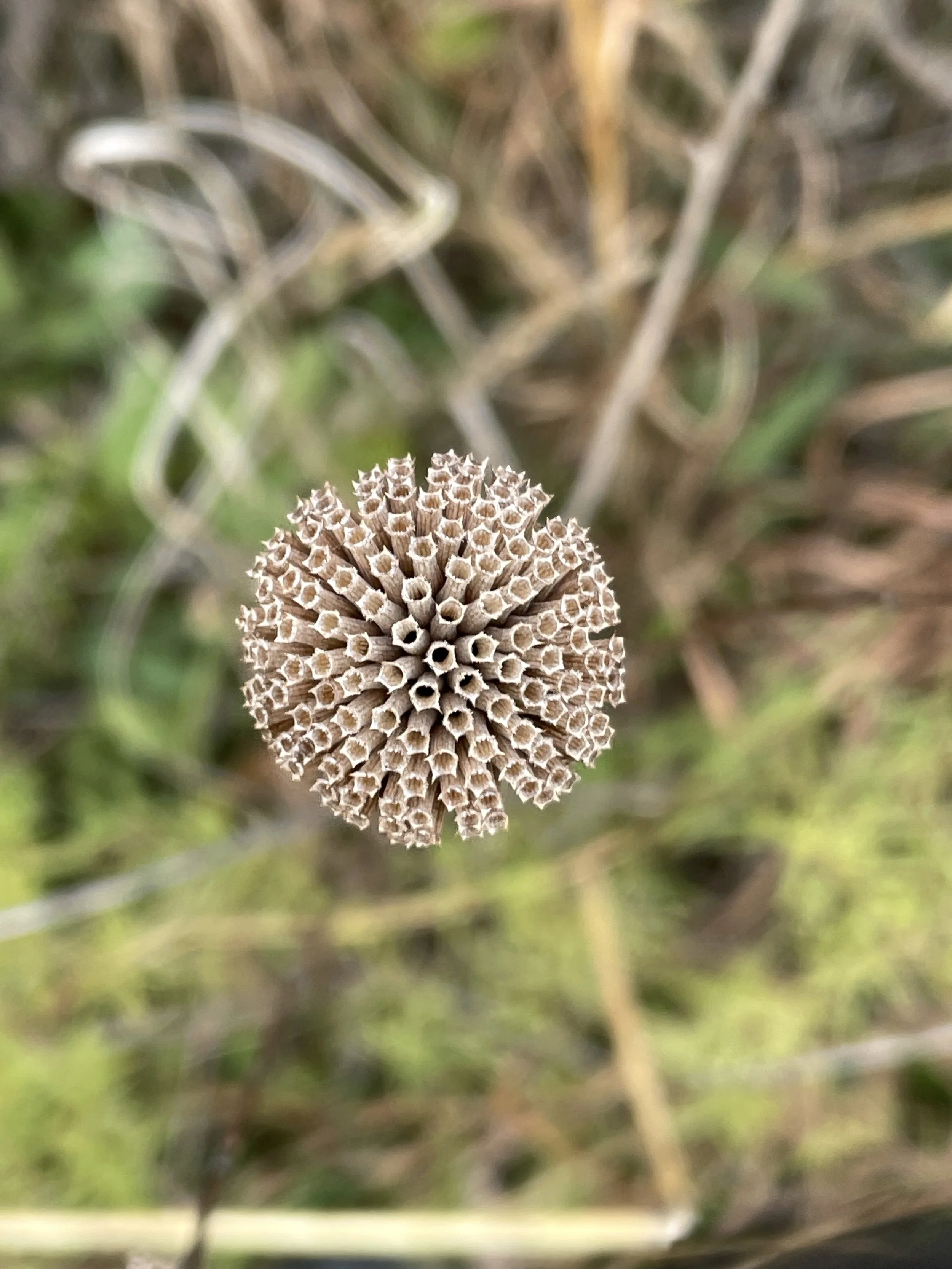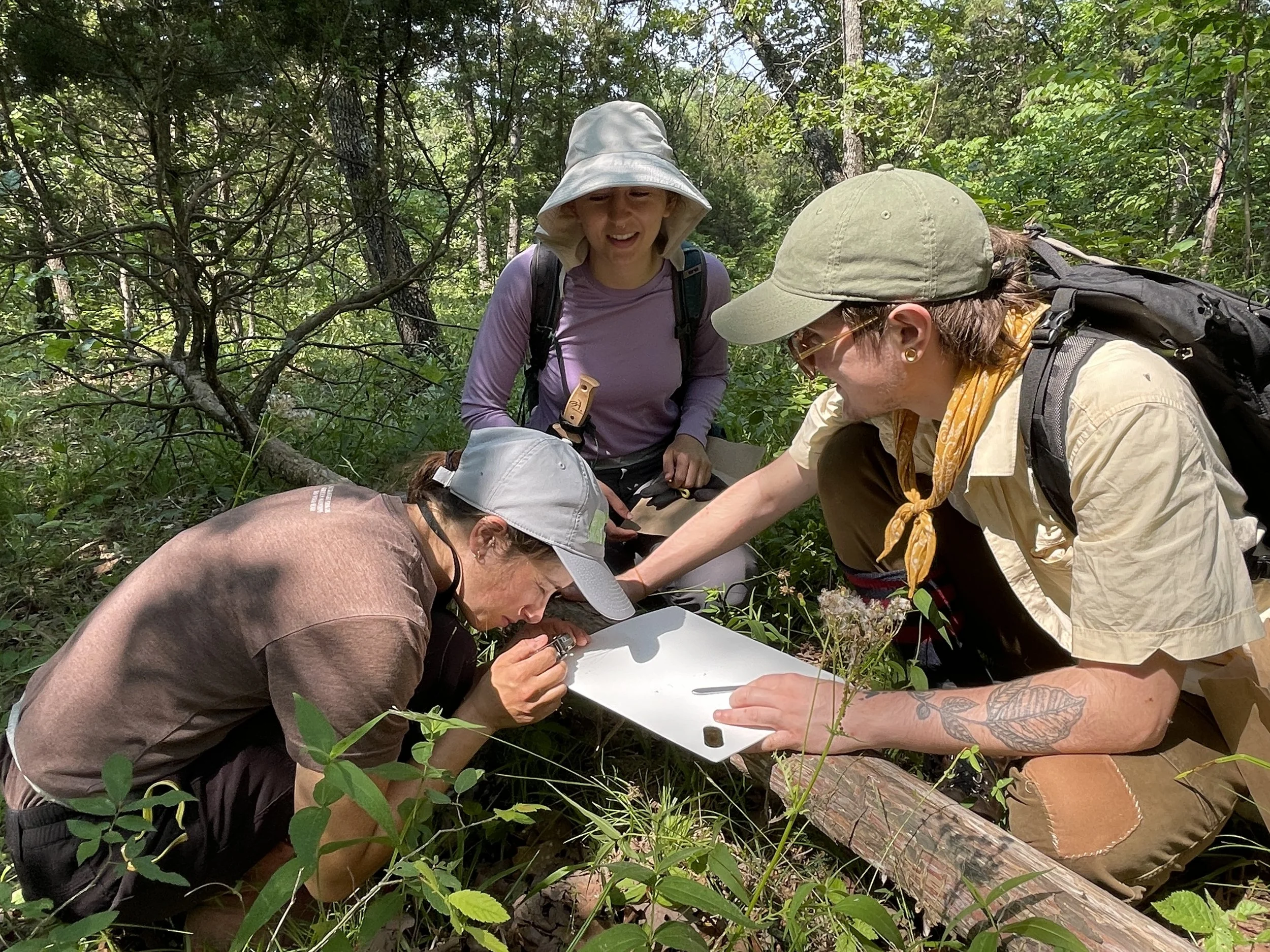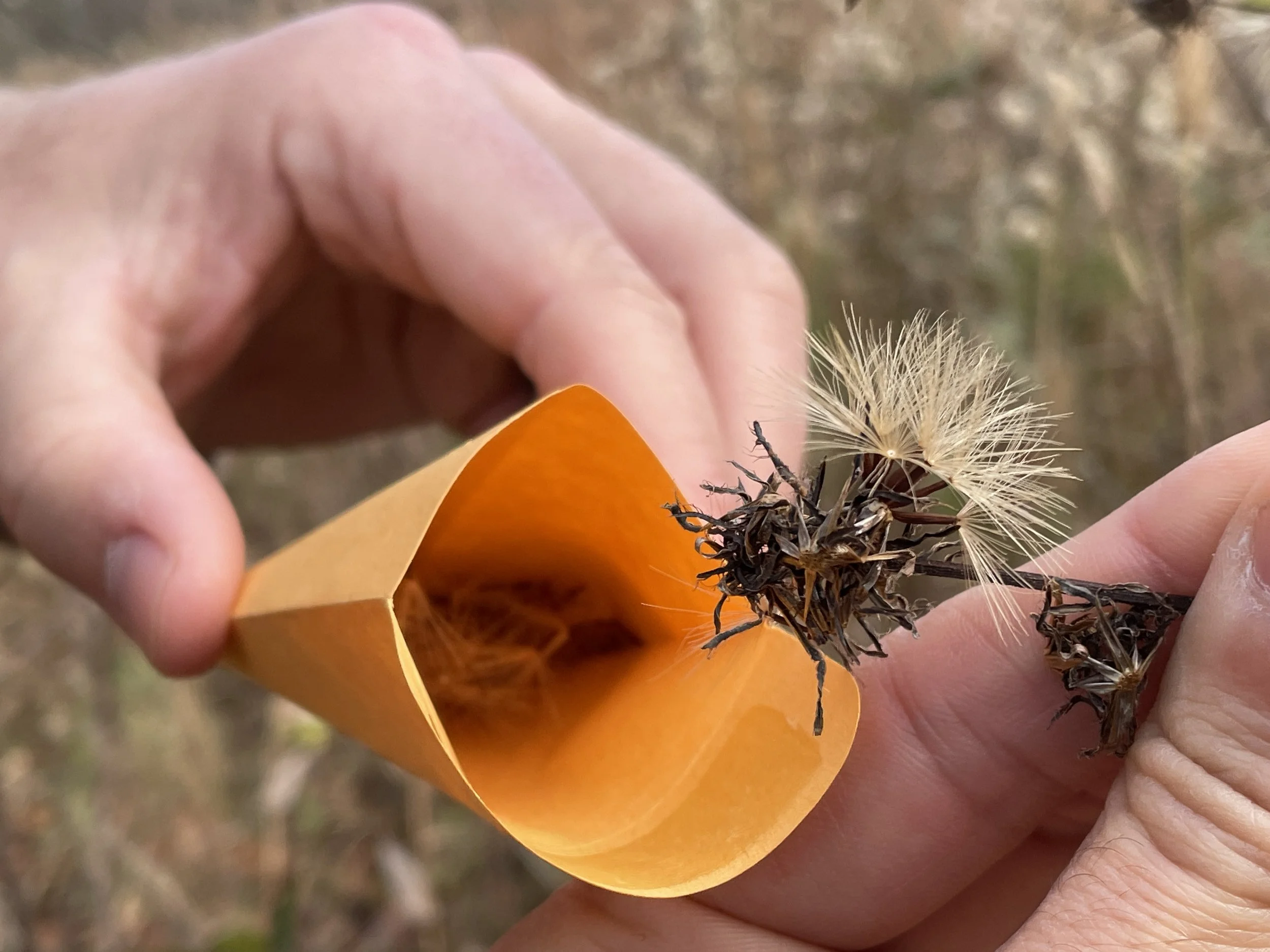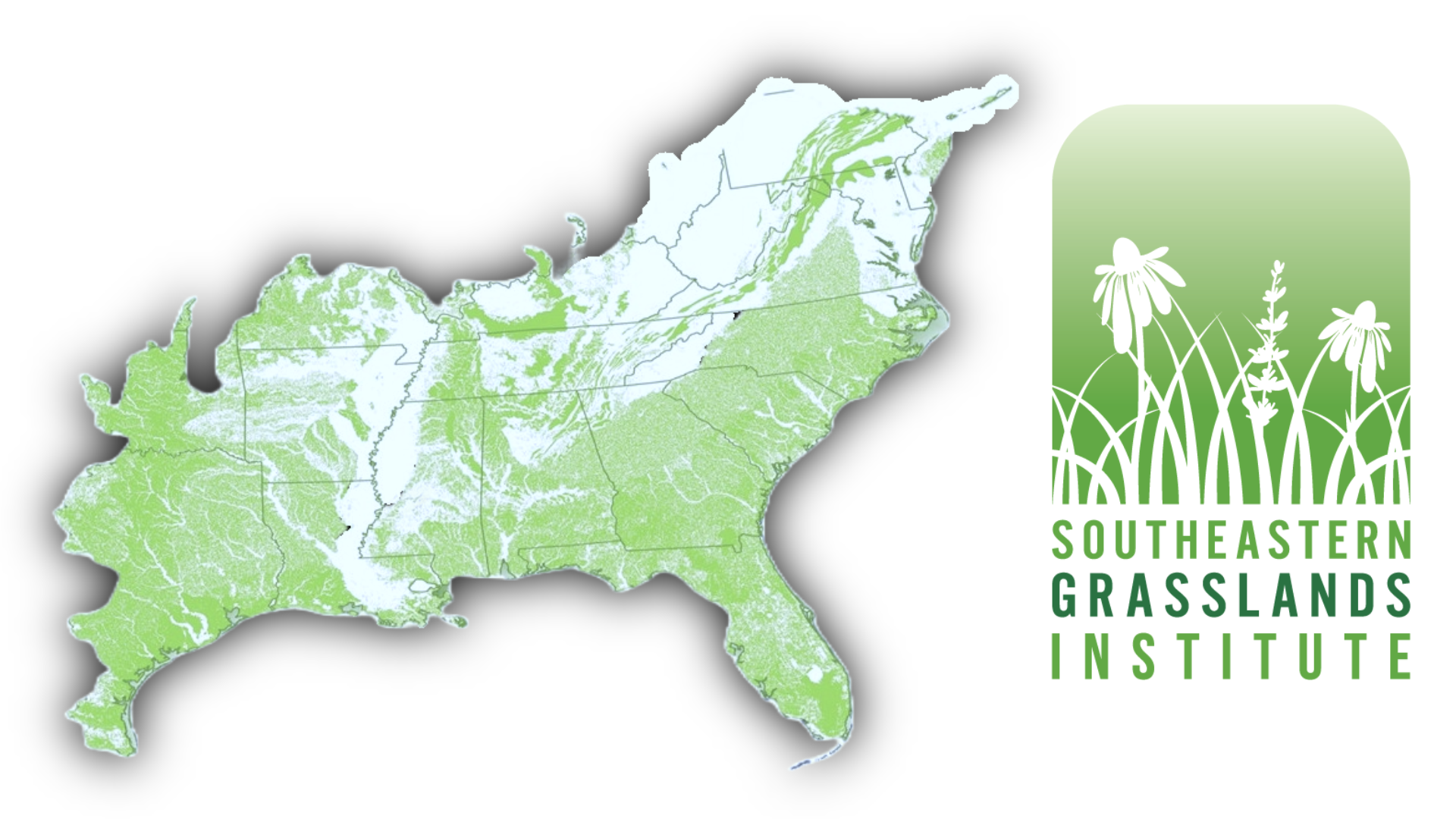projects and initiatives
Ethical wild seed collection
SGI collects native seed from high-priority species and landscapes, aligning with restoration needs and regional goals. Collections include both federally supported Seeds Of Success (SOS) efforts and targeted native species projects that expand biodiversity and support long-term ecosystem resilience.
Highlights include:
Seeds of Success (SOS) collections with support of the Bureau of Land Management and the U.S. Fish and Wildlife Services
Plant It Forward (PIF) collections supported by the United States Department of Agriculture Natural Resource Conservation Service (USDA-NRCS)
Seeds Of Success Southeastern Regional Collections. Partners include Audubon Delta (AR), the Jones Center Ichauway, North Carolina Botanical Garden, and the State Botanical Garden of Georgia.
Seed banking
The Seed Bank has enabled the reintroduction of 354 collections across the region. SGI has carried out 1,034 seed collections in the field to date. We have 184 rare species banked, and 190 non-rare collections in storage that will support reintroduction restoration work.
The Seed Bank is supported by Seeds of Success, a Bureau of Land Management and Fish and Wildlife Services federally sponsored regional program, and Plant It Forward which is an NRCS partnership.
Our efforts to conserve and bank rare species for potential reintroduction at potential future sites is supported by the Center for Plant Conservation.
Seed processing
Processing is where raw collections become usable seed. SGI is building capacity for small-scale seed cleaning, with a focus on maintaining seed quality and genetic integrity. Our work also supports training for staff, partners, and volunteers, and fills key infrastructure gaps in the region.
Highlights include:
Current capacity and volunteer engagement has led to hundreds of collections cleaned in our seed laboratory. We are grateful to the hundreds of volunteers that have made this possible! SGI is working to expand our seed cleaning capacity with investments in continued partnerships and infrastructure expansion.
Future efforts look to expand seed cleaning capacity in the Southeastern region
seed production
Our long-term production goals include generating foundation seed for growers, producing seed from underrepresented species, and growing plugs for direct restoration. We also support applied research that explores seed production techniques, sustainable agricultural practices, and inclusive models that reduce barriers to participation in the native seed economy.
SGI is committed to investing in foundation seed for growers, applied research, increased regional seed production, and sustainable native plant agriculture production methods.
SGI’s Seed Program has a commitment to investing in foundation seed for growers, applied research into increase, production, and sustainable agricultural methods.
partner collaboration
At the core of the Seed Program’s work is partnership. SGI coordinates the collaborative Southeast Native Seed Network (SENSN), a collaborative platform that brings together nonprofits, agencies, producers, Tribal partners, researchers, and grassroots groups. Together, we build shared tools, align regional priorities, and support system-wide solutions for native seed supply.
Geographic and data systems (GIS)
SGI’s GIS and planning tools support the entire seed-based restoration cycle. From scouting to seed distribution, our data systems connect collection with restoration and provide clear, actionable information for SGI and its partners. These tools are co-developed with SGI’s Restoration and Research teams to ensure alignment and ease of use.
GIS tools that track seed movement from field to end use
Internal processes, from scouting to end use, are in development
Inventory management systems are in development
The development of Southeast Native Seed Network info hub is ongoing
“This seed program means a great deal to me. It is not just about collecting and storing seed. It is about restoring ecosystems, supporting the people who care for them, and investing in the future of our landscapes. Every part of this work, from collection to community engagement, carries purpose. I am proud to be part of something that brings so many partners together for a cause that truly matters.”
